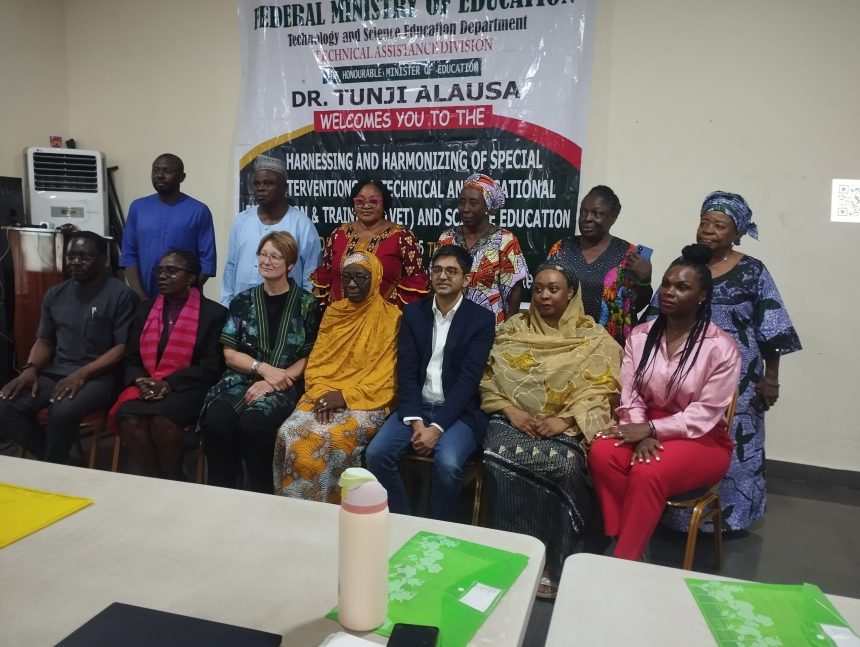The Federal Ministry of Education says that the resuscitation of Technical and Vocational Education and Training (TVET) will help address the outdated curricula and weak industry linkages in the country.
Dr Muyibat Olodo, Director of Technology and Science Education, Federal Ministry of Education, made this known in Abuja on Tuesday at a one-day forum on harnessing and harmonising special intervention in TVET and science education.
Olodo called for a unified national strategy to address other challenges of the initiative.
The dialogue brought together major development partners and stakeholders, including representatives from UNESCO, GIZ, UNICEF, the European Union.
The director emphasised the central role of TVET and STEMM (Science, Technology, Engineering, Mathematics, and Medicine) in the Nigeria Education Sector Renewal Initiative (NESRI).
“TVET and STEMM have now moved beyond departmental silos—they are the engine rooms of innovation, employment, and national growth,” she said.
Olodo expressed gratitude to development partners for their consistent support and urged that all contributions aligned with the Terms of Reference of the Ministerial Committee on Harmonisation of Development Partners’ Programmes.
She stressed the importance of ensuring that the dialogue leads to action-oriented, nationally coordinated outcomes.
Also, Ms. Britta Erckelens, Head of Programmes for the GIZ/SKYE II programme, echoed the call for greater harmonisation.
She applaudedbthe Ministry’s proactive leadership, while highlighting GIZ’s focus on inclusive, demand-driven training, especially for youth, women, and persons with disabilities.
She also spotlighted the growing need for green skills and digital economy readiness, urging stronger engagement with the private sector to amplify results.
The UNESCO Abuja Office, Mr Albert Mendy, represented by Mr Manish Joshi, Regional Lead of the BEAR III initiative, reiterated UNESCO’s long-standing support for Nigeria’s TVET agenda.
He praised the Federal Ministry of Education’s stewardship and highlighted the collaborative BEAR III project, implemented with the Republic of Korea, as a model of effective partnership.
He stressed the importance of modern infrastructure, career guidance systems, private sector collaboration, and quality teacher training in unlocking TVET full potential.












